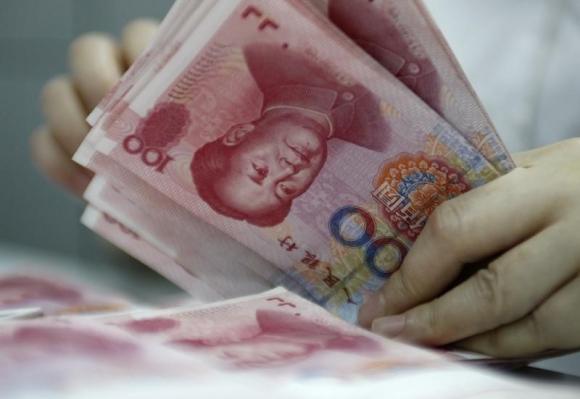


WASHINGTON, April 14 -- China's central bank deputy governor Yi Gang said here Thursday he is confident that the Chinese currency the RMB will remain stable.
Yi made the remarks at an event at the Brookings Institute. He emphasized that China pursues a managed floating exchange rate regime that is based on market supply and demand and with reference to a basket of currencies.
Yi said the U.S. dollar still has a very large weight in the basket, but the RMB is referenced against the basket as opposed to being pegged to it.
He also emphasized that market forces remain the number one factor in determining the value of the RMB, but tremendous market volatility is not good for China or the rest of the world, especially considering weak global demand.
According to the deputy governor, China on one hand is open to market forces, but on the other has to avoid sharp market volatility.
Considering China's current account, foreign direct investment and outward direct investment, the RMB exchange rate is still within the equilibrium level, said Yi.
Yi also expressed confidence in the Chinese economy, citing economic data in the first quarter, which indicates that the Chinese economy has kept robust growth.
According to latest data from China's National Bureau of Statistics, the Chinese economy expanded 6.7 percent in the first quarter, meeting expectations.
China has created solid macro-economic policies this year, and there is no need to exaggerate and overreact to the risks, said Yi, adding that he is confident the country will secure 6.5 percent to 7 percent growth this year.
According to the deputy governor, the greatest difficulty China now faces is implementing reforms. Compared to monetary and fiscal moves which could deliver policy goals in a fast way, structural and supply-side reforms are faced with some fundamentally rooted problems, such as labor market and property rights issues.
China is undergoing economic transition, which will take several years, but progress has been made. Last year, consumption contributed to over 66 percent to GDP growth, and the services sector made up more than 50 percent of the overall economy, and was 10 percentage points higher than the share of the manufacturing sector.
Yi also pointed out that a high savings rate is a difficult issue for China to deal with in its transition, as unleashing those savings would lead to more investment both at home and abroad and hold the investment share of GDP at a high level.
 The evolution of J-10 fighter
The evolution of J-10 fighter Top 10 Asian beauties in 2016
Top 10 Asian beauties in 2016 What's happening in Xisha Islands?
What's happening in Xisha Islands? When female soldiers meet flowers
When female soldiers meet flowers North Sea Fleet conducts drill in West Pacific Ocean
North Sea Fleet conducts drill in West Pacific Ocean Old photos record the change of Sichuan over a century
Old photos record the change of Sichuan over a century Breathtaking aerial photos of tulip blossoms in C China
Breathtaking aerial photos of tulip blossoms in C China Horrific: Pit swallows 25 tons of fish overnight
Horrific: Pit swallows 25 tons of fish overnight Vietnamese Su-30 fighters fly over Nanwei Island in South China Sea
Vietnamese Su-30 fighters fly over Nanwei Island in South China Sea Top 20 hottest women in the world in 2014
Top 20 hottest women in the world in 2014 Top 10 hardest languages to learn
Top 10 hardest languages to learn 10 Chinese female stars with most beautiful faces
10 Chinese female stars with most beautiful faces China’s Top 10 Unique Bridges, Highways and Roads
China’s Top 10 Unique Bridges, Highways and Roads Student lottery strands young Chinese in US
Student lottery strands young Chinese in US Gay marriage ruling marks progress in societal openness
Gay marriage ruling marks progress in societal openness China watchdog cracks down on illegal live streaming platforms
China watchdog cracks down on illegal live streaming platforms North Korean restaurants face rocky future in China as sanctions bite, staff defect
North Korean restaurants face rocky future in China as sanctions bite, staff defectDay|Week